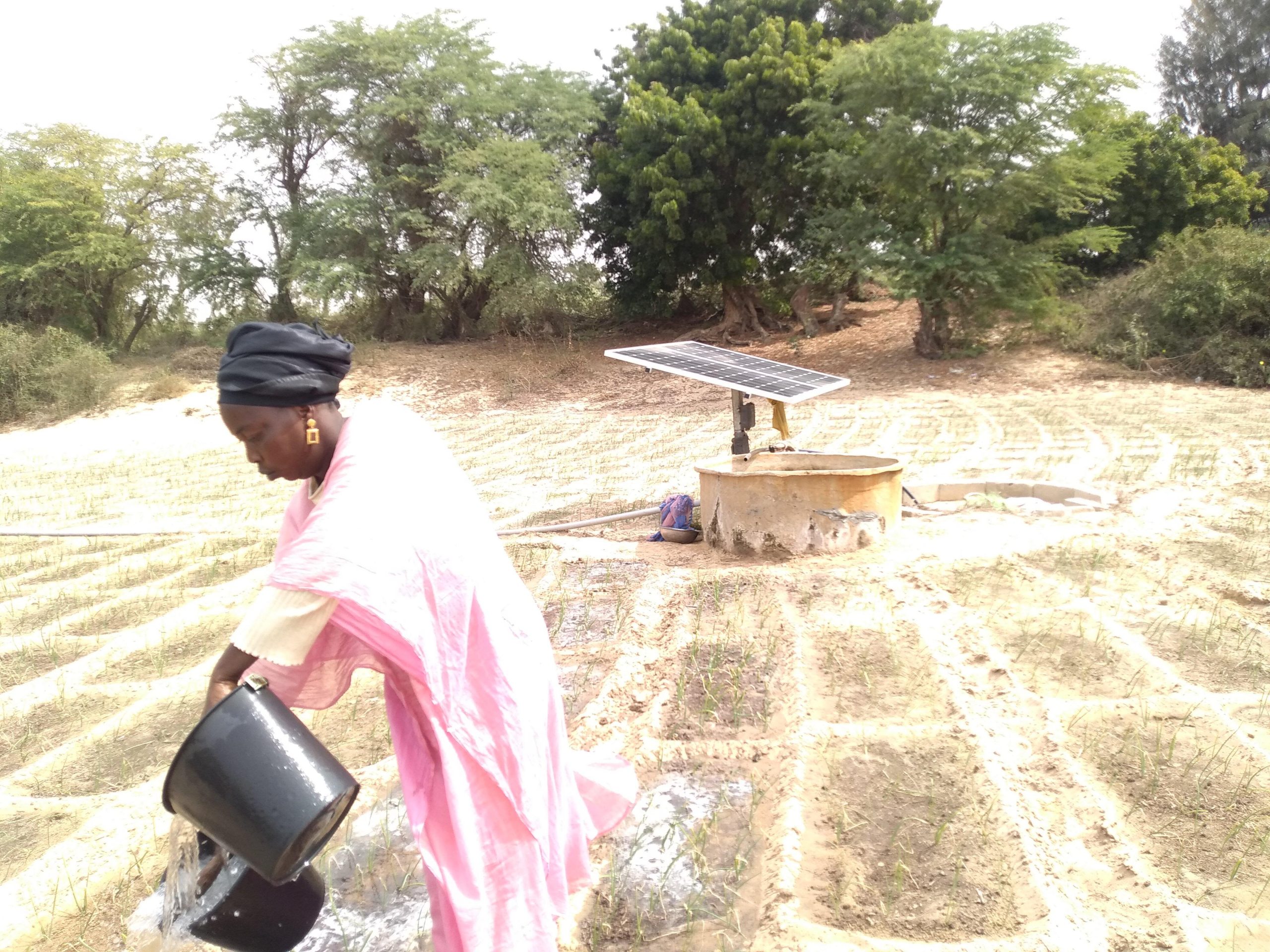Once she had finally paid off her solar water pump last June, thanks to the grant received through ENERGIA’s Covid19 Solidarity Fund, and with enough capital for seedlings, feritiliser and labour Aïssata Ba took some time at the end of the summer to prepare her land for a new agricultural cycle.
She had already bought and nursed the cabbage seedlings and contracted a farm worker to help tend the crop over a three-month period when a close relative of the worker died. The next day he left for Ziguinchor, 500km away from Lompoul, and never returned.
Aïssata suddenly found herself alone without anyone to help in the field. Unable to cope with all the labour involved in tendering a large cabbage crop at the same time as selling fish at the local market, she had to make a quick decision: to sell the seedlings to other farmers and abandon this cropping season. While she managed to recover her initial outlay in full, by forgoing the expected profit from future sales (estimated to be in the range of 374,400 Francs or €573), she knew she would soon find herself short on cash.
After consulting with her Energy 4 Impact’s agricultural advisor, Mbaye Dièye, she decided to grow turnips, as they mature faster than cabbages and sell for a good price at this time of the year. So, she went ahead and sowed just 10 plants. With fewer plants to water and a smaller plot to unweed, Aïssata managed to complete her campaign on her own. The following month, she harvested 200 kg of turnips, which she sold for 96,000 Francs (€147), making a 71,000 Francs (€108) profit.
Despite turning a modest profit from her turnip crop Aïssata found herself worn out by the stressful experience. She would like to find a permanent solution to the unpredictable availability of seasonal labourers.
Agreeing to share profits with the workers is no longer a viable model during such a time of economic uncertainty and declining income. I feel I have no control over my workers, who can leave without notice or committing to return.
Aïssata has been exploring alternative solutions to further mechanise land irrigation and minimise her reliance on seasonal workers. She has therefore approached Energy 4 Impact to see how she could go about acquiring and automated drip irrigation systems to cover her perimeter.
Whilst searching for a potential solution that matches her needs and budget, she has enlisted the services of her son, who has recently returned home, to help prepare the land for a new onion cycle. This involves spreading manure across the whole field and tilling the soil before planting.
Aïssata retains a positive outlook in the face of the recent challenges. Knowing that she can still count on some of the working capital established by the ENERGIA COVID-19 solidarity fund to prepare the current onion campaign, gives her some peace of mind.
This story has been developed by our partner Energy 4 Impact as part of our Women’s Economic Empowerment Program.







